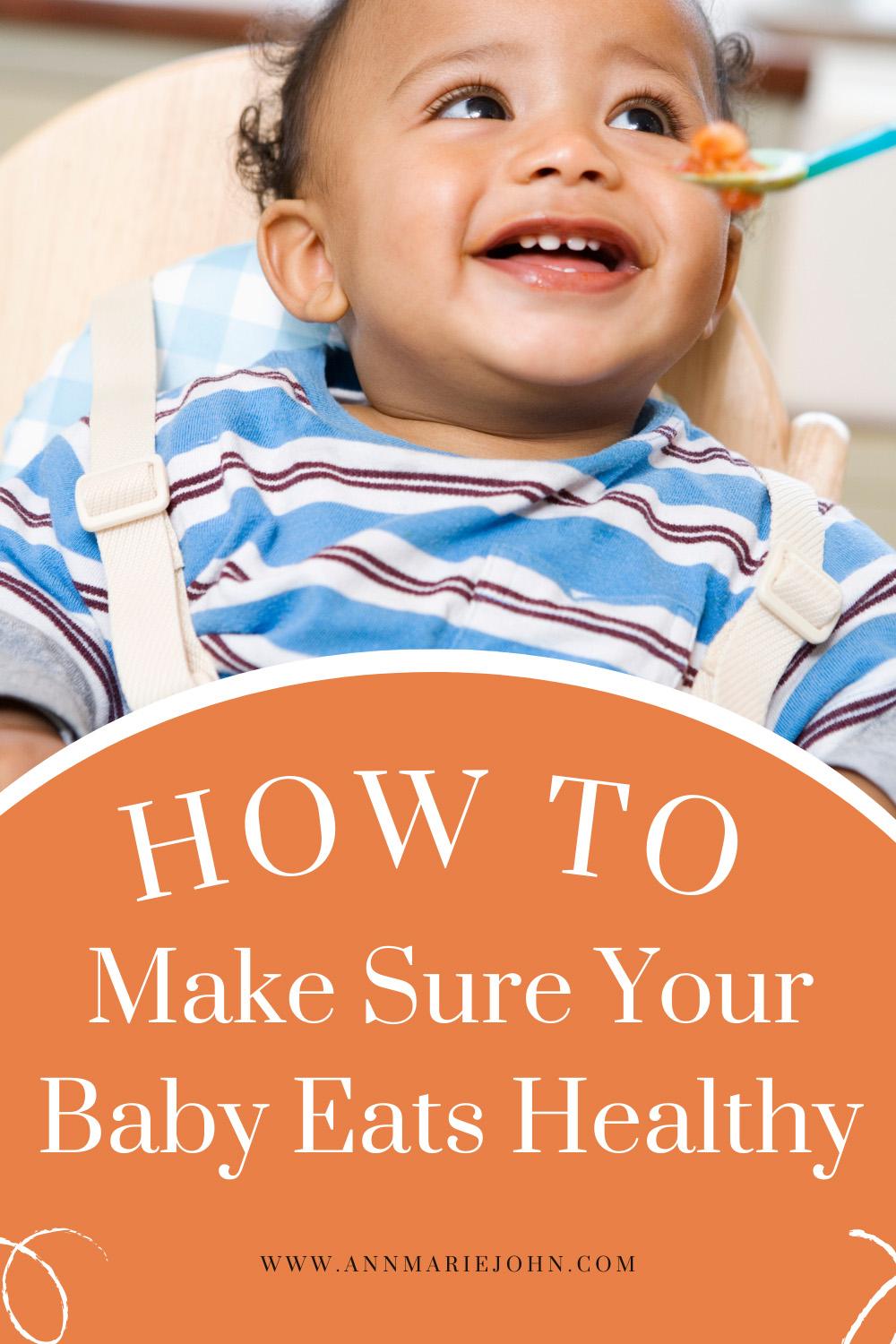From introducing solid foods to setting good eating habits, we have tips to ensure your baby grows up with a healthy relationship to food.

As a parent, it’s important to ensure that your baby is getting the proper nutrition for them to develop and grow. However, this can be tricky as babies have different nutritional needs than adults do. That’s why it’s essential to provide your baby with a healthy diet from day one of their life. We’ll discuss some tips on how you can make sure your baby eats healthy meals every day so they can reach their full potential. We’ll also explore some of the benefits of providing nutritious food for babies and discuss ways to keep mealtime enjoyable for everyone involved!

Breastfeed
Breast milk is packed with essential nutrients, such as vitamins and minerals, that are important for your baby’s growth. It also contains antibodies that help protect your baby from illnesses. If you’re able to breastfeed, it’s the best way to ensure that your infant gets all the nutrition they need. The best part about breastfeeding is that your child will always get the right amount of food, so you don’t need to measure out a formula or worry about giving too much. Additionally, breastmilk is easy to digest and has a natural sweetness that many babies love.
Introduce Solid Foods Slowly
Once your baby reaches around 6 months of age, it’s time to start introducing solid foods into their diet. It’s important to do this slowly so they can get used to the texture and flavor of new foods. Start with pureed vegetables or fruits, as these are easy for babies to digest, and introduce one food at a time in small amounts. This way, you can easily monitor how your baby reacts to each food before adding more variety. Once your infant starts showing an interest in finger foods like crackers, bread, and rice, you can start introducing those to them too. Children can usually transition to these foods by the time they are one year old.
Offer Variety
It’s important to offer a variety of foods so your baby can learn to enjoy different flavors and textures. Offering healthy snacks like vegetables, fruits, yogurt, or whole-grain crackers throughout the day is a great way to add more variety to their diet. Additionally, babies must get enough protein in their diets as well. You can introduce small amounts of lean meats such as chicken or fish as well as tofu for vegetarian families. Some babies may not be interested in eating meat, and that’s okay too; just make sure to provide them with alternative sources of protein, such as lentils or beans.
Mealtime Should Be Fun
Mealtime doesn’t have to be a stressful event; it should be an enjoyable experience for both you and your baby! Make mealtime fun for your baby by playing games or making funny faces while encouraging him or her to try new foods. If they don’t like something at first, try giving it to them again a few days later. Your baby will eventually learn to enjoy different flavors if given the chance. Additionally, allow your child some freedom when eating so they can explore different tastes and textures without feeling rushed or pressured. Try to avoid using food as a reward or punishment, as this can lead to unhealthy eating habits down the road.
Monitor Your Baby’s Growth
Regularly monitoring your baby’s growth is an important part of making sure they are getting the proper nutrition. Keep track of their weight and height to ensure that they’re on track with the expected growth for their age. If you notice any changes in your child’s growth, make sure to consult a doctor or dietitian who can help you create a healthy meal plan for them. If you see that your baby isn’t gaining weight or is losing weight, it’s important to speak with a healthcare professional to make sure that their diet is meeting all of their nutritional needs. Some children tend to be picky eaters and may not get the variety of foods necessary for optimal growth.
In Conclusion
By using these tips, you can make sure your baby is getting a healthy, well-balanced diet that will help them reach their full potential. Making mealtime fun and offering variety while introducing solid foods slowly will help make sure your infant has a healthy relationship with food as they grow up. Additionally, breastfeeding is the best way to make sure your baby is getting all of the essential vitamins and minerals they need for proper development. With some patience and persistence, you’ll be able to create a positive feeding experience for your child that lasts well into adulthood!
